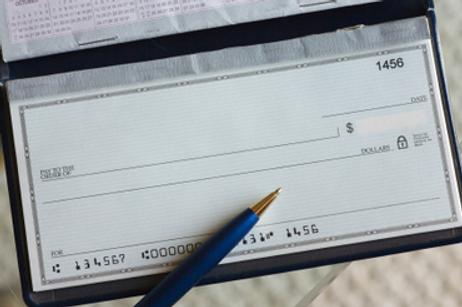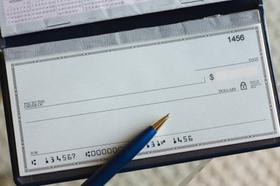Private School May Be Free If You Make Less Than $100,000
Over the past two decades, private schools have developed very generous financial aid programs.
- This has happened for a variety of reasons.
- But the most compelling reason is that private schools want to diversify their student bodies.
- They want to attract academically well-qualified applicants whose families cannot afford the enormous expense of sending their children to private schools.

Generous financial aid programs are one way of helping schools achieve that goal.
Here's how Exeter describes why it offers the very generous financial aid it does:
"Socioeconomic diversity has been a characteristic of Phillips Exeter Academy from our founding. It's built into our ethic—to attract and teach 'youth from every quarter'—and it's crucial to the nature of our community and our classrooms."
St. Paul's School, Concord, New Hampshire, expresses its commitment to financial aid as follows:
"We are committed to making St. Paul’s an affordable option for families."
To honor this commitment, we will:
"Consider a household income of $80,000 per year or less as qualifying for full financial aid. Families with an annual income of less than $200,000 will not pay more than 10% of their income toward tuition per year."
Deerfield Academy explains its financial aid as follows:
“Deerfield’s commitment to affordability and access in the form of need-based financial aid is historic, deep, and central to its educational mission. It is founded on the idea—beautifully articulated over a century ago when Frank L. Boyden asked families to ‘pay what you can’—that the Deerfield Experience should be accessible to all young people of promise regardless of means.”—Head of School Dr. John Austin
How generous are private school financial aid programs?
Let's look at a few examples. Basically Exeter is free to those with need.
- Families with incomes less than $125,000 will contribute nothing for an Exeter education. Same thing at Groton.
- St. Paul's is close behind with a $150,000 threshold. Deerfield's limit is $150,000.
- Phillips Andover offers 'need-blind' assistance to all deserving applicants.
Read At Elite Prep Schools, College-Size Endowments to understand why this has come about.
- What is exciting to see is that these private schools state their thresholds clearly.
- Years ago, sometimes, the financial aid pages required a lawyer to decipher precisely who was eligible for assistance.
- The verbiage was that complicated.
- No more. Schools spell out their financial aid programs clearly and concisely.
Inclusivity is In. Exclusivity is Out.
So, what's happening here? Why are these highly competitive schools offering a free education to children from families with incomes below $100,000?
- Simply because they want to make their excellent education available to a broader constituency.
- When tuition and expenses creep into the $75,000 range, it means that only a tiny percentage of American families can afford to attend those schools. Schooling has to be free in order to attract students from families making less than $100,000.
For many years private schools had a reputation for being exclusive as opposed to inclusive.
- Visionary school leaders and their trustees have realized that exclusivity based on financial considerations is not always a good thing.
- Many academically qualified students won't even bother to apply to a private school simply because they perceive that it is beyond their means.
- Eliminating that financial barrier opens the doors to inclusiveness.
Top Colleges Lead The Way
The top private schools tend to follow the lead that top colleges set. In this case, several colleges decided to give applicants from families below a certain income threshold a free education in order to diversify their student bodies.
- Harvard University took the initiative in the fall of 2007 by announcing that children from families making less than $60,000 would not pay if they were admitted to the university. Harvard's current income level is $85,000.
- Yale and Dartmouth then followed suit by offering similar programs.
- Just about every university offers financial aid. However, Harvard, Yale, and Dartmouth drew a clear line and stated unequivocally that families below that $100,000 threshold don't have to pay.
Ask About Financial Aid
Financial aid sounds complicated.
- It often is. On the other hand, with institutions like Exeter, Groton and St. Paul's blazing a need-based trail for financial aid, the process just became a whole lot easier.
- Make sure you ask about financial aid programs.
- The financial aid officers at the schools in which you are interested are experienced and helpful. Ask.
Free Schools
Besides considering private schools that offer generous financial aid programs, you should also consider one of the free private schools if you happen to live in the area.
Several schools around the country are tuition-free or virtually so by design. They all offer a high-quality education at little or no cost to you.
- De Marillac Academy, San Francisco, CA
- Epiphany School, Dorchester, MA
- Girard College, Philadelphia, PA
- The Glenwood School, Glenwood, IL
- Milton Hershey School, Hershey, PA
- Kamehameha Schools, Honolulu, HI
- Regis High School, New York, NY
The Cristo Rey Model
Another option is the Cristo Rey model.
- The Jesuits came up with a work-study approach to helping families in inner cities finance a private school education.
- It has been highly successful and has attracted substantial corporate support.
- The Bill and Melinda Gates Foundation has championed this model as it tries to transform American education.
This short video offers you a glimpse of how Cristo Rey Schools work.
In Conclusion
Each private school offers its own financial aid program.
So do not assume that the amount of financial aid that one school offers you will be the same as another or other schools. Always ask each school.
Be prepared to file The Parents' Financial Statement as part of your documentation. Schools use The School and Student Service for Financial Aid, a third-party service operated by the National Association of Independent Schools, to document their financial need. The SSFA does not determine how much money, if any, will be granted to you. The individual schools have their own financial calculators, which take into consideration a host of factors. You can find more information about how financial aid is calculated at each school on their websites and by asking their staff of financial assistance.
My last piece of advice is common sense: apply well ahead of each school's published deadlines. There is a lot of documentation to gather and submit. That can take 5-10 man hours to do just by itself. Then, allow another hour or two to complete and submit the financial aid request using the PFS and any additional forms that the schools require.
You can listen to a podcast version of this article on SoundCloud.
Questions? Contact us on Facebook, Instagram, and YouTube. @privateschoolreview
#PrivateSchoolAccess #TuitionFree #FinancialAid #InclusiveEducation #EliteSchools #AffordablePrivateSchools #privateschools






-4c3194pi4wis8gsg004w0g44w-280.jpg)















